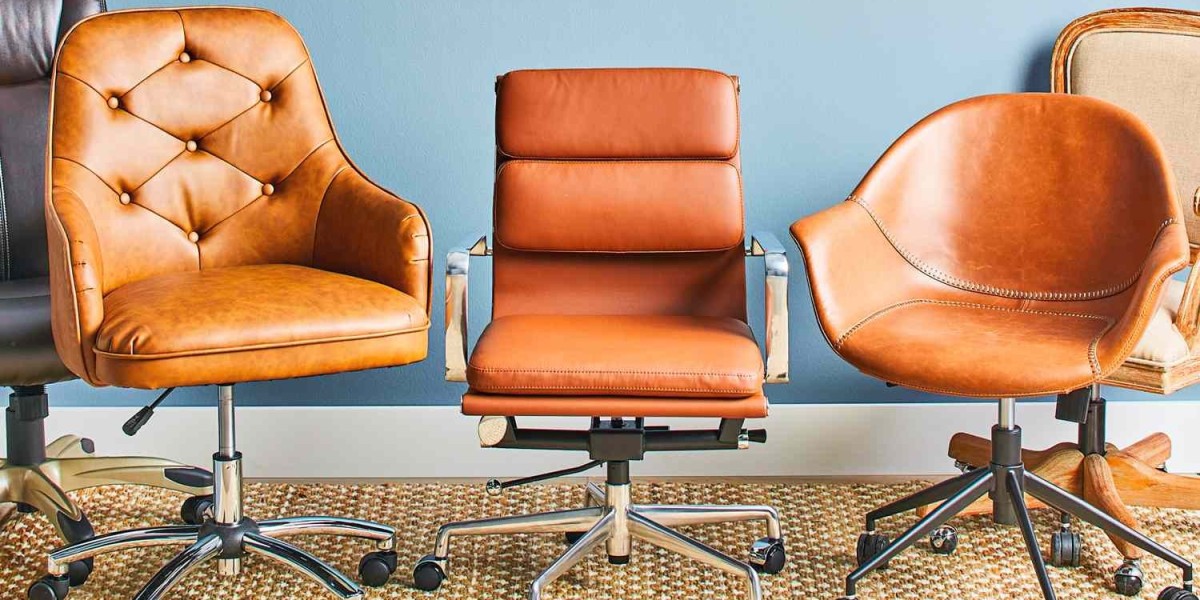Office chairs play a crucial role in promoting employee well-being by influencing physical health, comfort, and productivity. A well-designed, ergonomic office chair not only enhances comfort but also helps prevent common workplace injuries and promotes a healthier work environment. Here’s how office chairs contribute to employee well-being:
1. Improved Posture and Spinal Health
- Why It Matters: Sitting for long periods in a poorly designed chair can lead to slouching, hunching, or awkward postures, which strain the spine and muscles.
- Impact on Well-being: Ergonomic office chairs support the natural curvature of the spine and provide lumbar support, which helps prevent back pain and reduces stress on the spine.
- How It Helps: Adjustable features like seat height, backrest angle, and lumbar support ensure that employees can maintain proper posture, reducing the risk of musculoskeletal disorders (MSDs).
2. Reduction in Musculoskeletal Disorders (MSDs)
- Why It Matters: MSDs, including back pain, neck pain, and joint issues, are common among workers who sit for prolonged periods without proper ergonomic support.
- Impact on Well-being: Ergonomic office chairs reduce the risk of developing MSDs by providing adjustable features that accommodate different body types and seating preferences.
- How It Helps: Features like adjustable armrests, seat depth, and tilt tension encourage better body alignment, minimizing strain on muscles and joints.
3. Increased Comfort and Reduced Fatigue
- Why It Matters: Sitting in an uncomfortable chair for extended periods leads to discomfort and fatigue, which can negatively affect concentration, productivity, and mood.
- Impact on Well-being: Office chairs with adequate padding, breathability, and ergonomic adjustments provide long-lasting comfort, allowing employees to focus on their work without distractions caused by discomfort.
- How It Helps: Comfortable chairs reduce pressure on key areas like the lower back, hips, and thighs, improving circulation and reducing the feeling of fatigue over time.
4. Enhanced Productivity and Focus
- Why It Matters: When employees are uncomfortable or in pain, they are more likely to lose focus and become less productive.
- Impact on Well-being: An ergonomic and supportive chair enables employees to maintain focus and productivity by providing physical support that helps them stay comfortable throughout the day.
- How It Helps: Employees who are comfortable and free from physical discomfort are less likely to take frequent breaks, leading to improved productivity and sustained focus.
5. Mental Well-being and Stress Reduction
- Why It Matters: Physical discomfort can contribute to mental stress, making it harder for employees to concentrate and increasing overall workplace stress levels.
- Impact on Well-being: Providing comfortable and supportive office chairs can reduce physical discomfort and stress, leading to better mental well-being and a more positive work environment.
- How It Helps: When employees feel physically supported, they are less likely to experience the stress and frustration that comes from discomfort, leading to a more relaxed and productive workday.
6. Promotion of Active Sitting and Movement
- Why It Matters: Sedentary behavior is linked to various health issues, including obesity, heart disease, and poor circulation.
- Impact on Well-being: Some ergonomic chairs promote active sitting, encouraging slight movements and shifts in posture throughout the day, which can help counteract the negative effects of prolonged sitting.
- How It Helps: Chairs with adjustable tilt, dynamic back support, and swivel mechanisms allow employees to move more naturally and maintain better circulation, reducing the risk of sedentary-related health issues.
7. Customization for Individual Needs
- Why It Matters: Employees come in different shapes and sizes, and a one-size-fits-all chair often does not provide the right support for everyone.
- Impact on Well-being: Ergonomic office chairs with multiple adjustment options allow each employee to customize their seating to their specific needs, improving both comfort and health.
- How It Helps: Features such as seat height adjustment, lumbar support, and adjustable armrests ensure that each employee can find their optimal seating position, enhancing their physical comfort and reducing the risk of injury.
8. Encourages Proper Circulation
- Why It Matters: Poor seating posture and lack of movement can lead to restricted blood flow, causing discomfort, swelling, and even long-term health issues.
- Impact on Well-being: Ergonomic chairs promote better circulation by providing support that encourages proper sitting posture and movement.
- How It Helps: Adjustable seat height and a reclined backrest position help employees maintain better circulation in their legs, reducing the risk of conditions like deep vein thrombosis (DVT) and swelling.
9. Support for Remote and Hybrid Workers
- Why It Matters: With the rise of remote and hybrid work models, employees are often working from home, where office setups may not be as ergonomic.
- Impact on Well-being: Investing in ergonomic office chairs for home use can ensure that employees working remotely are as comfortable and supported as they would be in the office.
- How It Helps: Providing remote workers with ergonomic chairs demonstrates a commitment to their well-being, helping them stay healthy, productive, and engaged, even when working from home.
Conclusion
Office chairs are more than just seating—they play a critical role in supporting employee well-being by promoting better posture, reducing the risk of injury, and improving comfort and productivity. Investing in high-quality, ergonomic chairs can have long-lasting benefits, including improved employee health, increased satisfaction, and enhanced overall performance. By addressing both physical and mental aspects of well-being, ergonomic chairs help create a healthier, more productive workspace.







